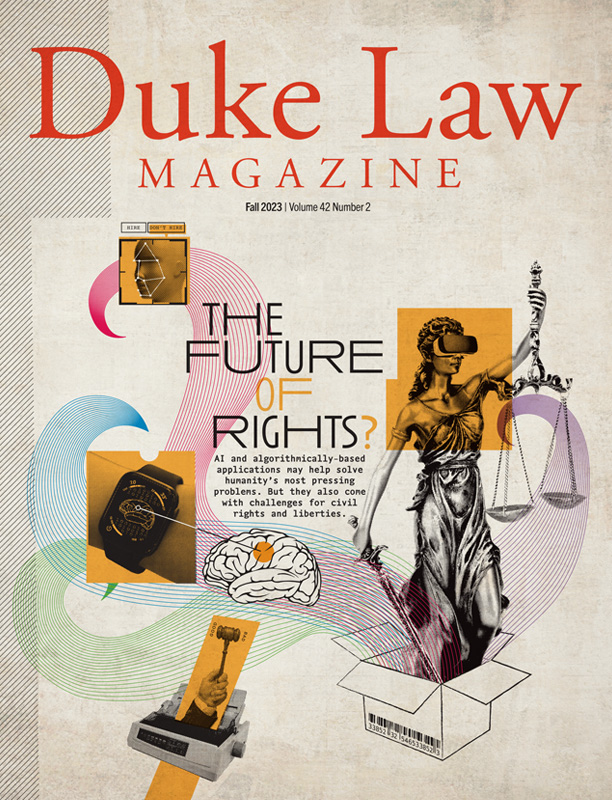
From the Dean
Dear Friends:
One of the biggest stories of the past year was the release of ChatGPT, an online tool that uses artificial intelligence to generate quick, human-like responses to prompts, often with impressive accuracy. Almost overnight, people were testing it out to see if it could compose a cover letter, write a college essay, and even pass the bar exam (it did all three).
Here at Duke Law School, our initial response was both excitement and alarm. We were eager to try this remarkable new tool, which seemed to have the power to revolutionize work, including the work of lawyers in the future. But we also could see its potential harm in an educational setting if it jeopardized our ability to assess students and know whether their work is their own. Duke Law students maintain a strong commitment to academic integrity, documented in our Honor Pledge and in our expectations for independent coursework, and ChatGPT isn’t going to change that. But in the short term, we decided to prohibit the use of generative AI in any assignments without specific permission from the professor while we assess its impact.
This response was typical of how we approach new technology. We always want to maximize the opportunities that innovations create and ensure students are ready to do the same when they enter the profession. But as we explore what makes them so alluring, we must also bear in mind their potential to undermine fundamental values, whether in the Law School or society at large.
The legal implications of generative AI and other algorithmically based tools are the subject of the cover story in this issue of Duke Law Magazine. These technologies promise to make life easier and more efficient in myriad ways, from improving productivity to increasing access to services, even legal services. They also, however, can introduce error and bias, intrude on individual privacy, or lead to wrongful arrests and prosecutions. Our curriculum in law and technology has featured a course in AI for seven years, but today a wide swath of our faculty, from bioethics to criminal law, are studying the ways it and related technologies challenge our fundamental civil rights and liberties — and what can be done about it. I hope you find their insights as intriguing and thought-provoking as I do.
Thank you as always for your friendship and support.
Warm regards,
Kerry Abrams
James B. Duke and Benjamin N. Duke Dean
and Distinguished Professor of Law
Duke Law Magazine is published under
the auspices of the Office of the Dean,
Duke University Law School,
210 Science Drive,
Box 90362, Durham, NC 27708
Dean
Kerry Abrams
Associate dean, communications, marketing, and events
Andrew Park
Editors
Valerie Marino
Jeannie Naujeck
Contributing writers
Richard Blaustein ’92
Hayley Foran
Richard Lawson
Susan Miller
Jeannie Naujeck
Andrew Park
Sean Rowe
Art Direction & Design
Marc Harkness
Illustration
Marc Harkness
Photography
Colin Huth
Ken Huth
Matthew Odom
Sean Rowe
Les Todd
Digital production
John Bigelow
Marc Harkness
Valerie Marino
Sean Rowe
Michael Wright
Alumni Notes Coordinator
Jenny Light

